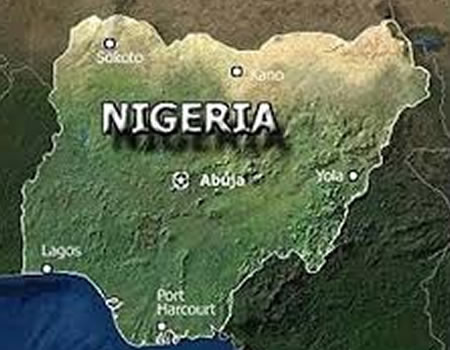 Nigeria, a country rich in natural resources and cultural diversity, has faced significant challenges in its development journey. One of the critical impediments to progress is the presence of bottlenecks and a lack of organized and directional national policies. This article explores the multifaceted losses incurred by the nation as a result of these issues, shedding light on the individuals or entities that may be behind the sabotage, all driven by self-interest.
Nigeria, a country rich in natural resources and cultural diversity, has faced significant challenges in its development journey. One of the critical impediments to progress is the presence of bottlenecks and a lack of organized and directional national policies. This article explores the multifaceted losses incurred by the nation as a result of these issues, shedding light on the individuals or entities that may be behind the sabotage, all driven by self-interest.The absence of coherent national policies and the prevalence of bottlenecks have had severe economic repercussions for Nigeria. Inefficiencies in various sectors, such as infrastructure, energy, and agriculture, contribute to a significant loss of revenue. This hampers the nation’s ability to attract investments, foster economic growth, and create job opportunities for its burgeoning population.
Bottlenecks and a lack of organized policies have resulted in the deterioration of critical infrastructure across Nigeria. Roads, bridges, and public utilities suffer from neglect, hindering transportation and communication networks. This not only impedes the movement of goods and services but also limits access to education and healthcare, perpetuating a cycle of underdevelopment.
Behind the sabotage of Nigeria’s progress are often instances of corruption and rent-seeking behavior. Individuals within the political and bureaucratic systems exploit gaps in policy implementation for personal gain. By engaging in corrupt practices, they divert public resources meant for development projects, exacerbating the nation’s economic woes.
The absence of a coherent national policy for education and skill development leaves Nigeria’s youth without the necessary tools to thrive in a rapidly evolving global economy. This loss of human capital further perpetuates the cycle of poverty and limits the nation’s potential for innovation and competitiveness on the international stage.
Inadequate policies and lack of effective implementation contribute to environmental degradation in Nigeria. Industries often operate without stringent regulations, leading to pollution and depletion of natural resources. This not only affects the health of the population but also hampers the nation’s ability to sustainably manage its resources for future generations.
While it is challenging to pinpoint specific individuals or entities responsible for sabotaging Nigeria’s progress, a critical examination of political and economic structures may reveal instances of vested interests undermining the nation’s development. In some cases, corrupt politicians, influential business figures, or individuals within the bureaucracy may exploit their positions for personal gain.
The loss incurred by Nigeria due to bottlenecks and a lack of coherent national policies is vast and multi-faceted. It is crucial for the nation to address these challenges head-on, fostering an environment of transparency, accountability, and sustainable development. Identifying and holding accountable those behind the sabotage is essential for Nigeria to embark on a path of inclusive growth and prosperity for all its citizens.



